
Slow cooking is a convenient time-saver for busy families. Some types of nutrients may be lost during the long time they are stewing during slow cooking, but a covered pot that keeps the cooking juices locked in minimizes the nutrient loss. Even with some nutrients lost in slow cooking, home cooking is bound to be more nutritious and healthful for your family than fast food and processed food products.
Advantages
Slow cooking allows busy moms to put a meal together in the morning and come home to a piping hot homemade soup, stew or casserole. Slow cooking can also produce meals that are more nutritious than take-out or prepackaged dinners. Convenience foods are often high in salt, fat and sugar, according to Glenyce Peterson-Vangsness, Food Science Extension Educator for the University of Minnesota Extension. When slow cooking at home, you can choose low-sodium broths, lean meats, whole grains, and substitute flavorful herbs and prepared spice mixes for salt. Strong-flavored vegetables such as cabbage, broccoli and turnips lose some of their flavor when slow cooked, according to the University of Kentucky Cooperative Extension, so slow cooking may make it easier to get some eaters to consume these nutritious vegetables.
Preparation
Start with only the freshest, crispest vegetables to ensure the highest nutrient content. Don't soak vegetables before you cook them, as minerals and vitamins will leach out into the soaking water, according to the University of Kentucky Cooperative Extension Service. Rinse the vegetables briefly under running water to clean them. Don't buy precut vegetables, according to the Baylor College of Medicine, because cutting your own will save money and nutrients. Select fresh or frozen meats that are in small pieces for slow cooking, as thawing out a large piece of meat in a slow cooker may keep temperatures low enough to invite food-borne contaminants.
Vitamin Loss
Most minerals remain stable in foods, but some vitamins are degraded by heat in cooking, according to dietician Monica Reinagel. Vitamin C, thiamin, vitamin B6, and folic acid, all water-soluble vitamins, are susceptible to being lost during cooking, according to the Colorado State University Extension. While these vitamins break down to some extent due to the heat of cooking, they are mostly lost to the surrounding cooking water. This is good news for cooking in a slow cooker, as incorporating the cooking liquids into gravy or sauce for the finished meal is the best way to maximize vitamin retention.
Micronutrient Gains
The vital micronutrients called carotenoids that are found in yellow, orange and red vegetables are made more accessible by cooking. These healthful compounds should also be consumed with fats to make them more easily absorbed, according to the Linus Pauling Institute at Oregon State University, so slow-cooking carrots, yellow peppers and tomatoes with a small amount of meat or olive oil can actually provide increased nutritional benefits. The carotenoids include alpha-carotene and beta-carotene, which the body converts to Vitamin A; lycopene, a valuable anti-oxidant that may reduce risk of cardiovascular disease and some cancers; and lutein and zeaxanthin, which play a critical role in eye health.
Considerations
Exercise food safety when slow cooking to ensure that the nutritious food you are preparing does not fall prey to food-borne organisms. Preheat the slow cooker to make sure that the foods come up to bacteria-killing temperature as rapidly as possible. Make sure that meats are covered with water or stock to ensure that they reach appropriate safe cooking temperatures.
Related Articles
Does Slow Cooking Take Nutrients Out of ...
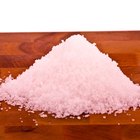
How to Use Sea Salt for Canning
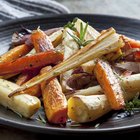
How to Cook Winter Root Vegetables in a ...
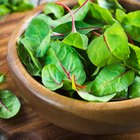
Oxalic & Phytic Acids in Foods

How to Steam Vegetables in an Electric ...

How to Preserve Amino Acids in the ...

Does Boiling Fruits Destroy Vitamins?

How to Cook Mixed Greens

Juicing to Tighten Flabby Skin

Does Boiling Carrots Destroy the ...
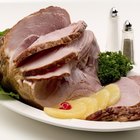
Does Boiled Ham Have Nitrites?

How to Preserve Rutabagas

The Nutrition of 15-Bean Soup

What Are the Dangers of Cooking With ...
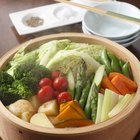
Does Food Lose Nutritional Value After ...
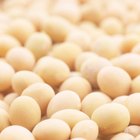
How to Cook Raw Chickpeas or Garbanzo ...
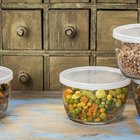
Toxins From Reheating Cooked Green ...

How Long Can You Cook Beef Ribs at 300 ...

How to Soak Amaranth

Is the Slow Cooker a Healthy Way to ...
References
- University of Illinois at Urbana-Champaign Cooperative Extension; Food Storage, Food Spoilage and Foodborn Illness; M.Susan Brewer; August 1991
- University of Minnesota Extension; Slow Cooker Food Safety; Glenyce Peterson-Vangsness; 2009
- Nutrition Diva; How Cooking Affects Nutrients; Monica Reinagel MS/LDN; December 2008
- University of Kentucky Cooperative Extension Service; Vegetable Preparation for the Family; Sandra Bastin PhD, RD LD; 2000
- Baylor College of Medicine: Cooking Suggestions Can Help Preserve Vitamins, Minerals
Resources
Writer Bio
A freelance writer since 1978 and attorney since 1981, Cindy Hill has won awards for articles on organic agriculture and wild foods, and has published widely in the areas of law, public policy, local foods and gardening. She holds a B.A. in political science from State University of New York and a Master of Environmental Law and a J.D. from Vermont Law School.
Photo Credits
Jupiterimages/Photos.com/Getty Images